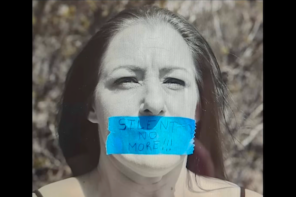On Tuesday, January 7, 2025—just its second day of the session—the Idaho legislature sent a joint House and Senate petition to the United States Supreme Court outlining their collective rejection of its Obergefell v. Hodges decision, which required all states to grant marriage licenses to “same-sex” couples and recognize such licenses granted in other states. This decision cemented the legal basis for marriage equality in the United States after decades of LGBTQ+ and civil rights activism.
Formally known as a memorial, the petition sent by the Republican-dominated legislature to the Supreme Court is without force of law even within Idaho, but it is nonetheless a politically significant document filled with imperative language and unequivocal pronouncements. It declares, for instance, that the Obergefell decision is “at odds with the Constitution” and claims that it rejects innate human dignity.
The memorial is more than just another salvo in the culture wars or the mere continuation of red states acting as “laboratories of authoritarianism.” The legislature’s act signals their enlistment in a new front in state-federal collaboration to undermine established laws and norms of democracy.
The 2022 Dobbs decision which overturned Roe v. Wade, can be seen as a strategic precedent for the Idaho memorial. Like Dobbs’s effect on access to legal abortion, the Idaho legislature insists that marriage policy must be the “exclusive province of the States.” But despite the catastrophic impact of turning abortion policy over to the states, there’s an equally disturbing and perhaps more exact precedent for the Idaho petition’s demands rooted in the history of “massive resistance” to the federal mandate of integration in the US South.
While Roe was overturned after decades of careful legal maneuvering, massive resistance was a political declaration of defiance by Southern political authorities. This was the impetus behind the 1957 confrontation between the Governor of Arkansas, Orval Faubus, and President Eisenhower over the integration of Arkansas schools, ending when Eisenhower famously federalized the Arkansas National Guard and ordered them to support the integration of Little Rock Central High School. The end of what history knows as the “Little Rock Crisis” was also the beginning of the expansion of the Civil Rights Movement, culminating in the passage of the Civil Rights Act of 1964.
However, the Supreme Court of 1954 that ended legalized racial segregation in Brown v. Board of Education was not the one we have in 2025—a Court that, had it been in place at the time, may well have upheld the “separate but equal” doctrine. Today we’re saddled with a Court that seems far more amenable to “states’ rights” arguments and an incoming presidential administration that will defer to individual states rather than instruct its justice department to enforce desegregation. A Trump justice department is also unlikely to defend marriage equality, and Trump himself may well argue that the matter should be left to the states.
The Idaho petition may not be a legally actionable item for SCOTUS review, but that does not mean it’s insignificant. It is, in all likelihood, a harbinger of several anti-LGBTQ+ efforts in the pipeline and a signal that the social conservative hardliners pushing this agenda intend to expand their targets to include rolling back same-sex marriage. Though Trump himself once declared it to be settled law, and though the focus of anti-LGBTQ rights activism has shifted over the past decade to center on attacks on transgender rights, the Christian Right has not abandoned its ultimate aim of rolling back marriage equality and state-federal collusion may be the only viable path forward to do so.
The Idaho memorial is a page directly out of Project 2025. That policy agenda makes clear that all three major Supreme Court decisions on LGBTQ rights in the 21st Century are vulnerable to being overturned, including 2003’s Lawrence vs. Texas, which decriminalized private, consensual adult non-procreative sexual activity and 2013’s Windsor vs. United States, which federally recognized state-sanctioned marriages. Overturning the Obergefell decision is a key step toward Project 2025’s top stated goal: “[to] restore the family as the centerpiece of American life and protect our children.” That goal, as the Idaho legislature makes clear, is fundamentally incompatible with marriage equality.
Moreover, the Idaho memorial needs to be understood in context. We already know about the Trump regime’s “shock and awe” campaign to release a deluge of executive orders on day one, the promised pardons for participants in the January 6 insurrection, and threats to “impound” funding earmarked for agencies he dislikes. But defiance from GOP-dominated states—legislative or executive—could unleash a storm of coordinated state-federal attacks, not only on the civil rights of LGBTQ+ people but also on those of immigrants, Muslims, African Americans, and anyone seen as the political opposition. It could also generate further popular agitation, increasing the sense of impunity and official approval that’s already likely to be stoked by pardons.





